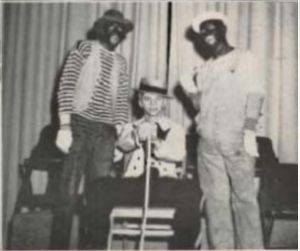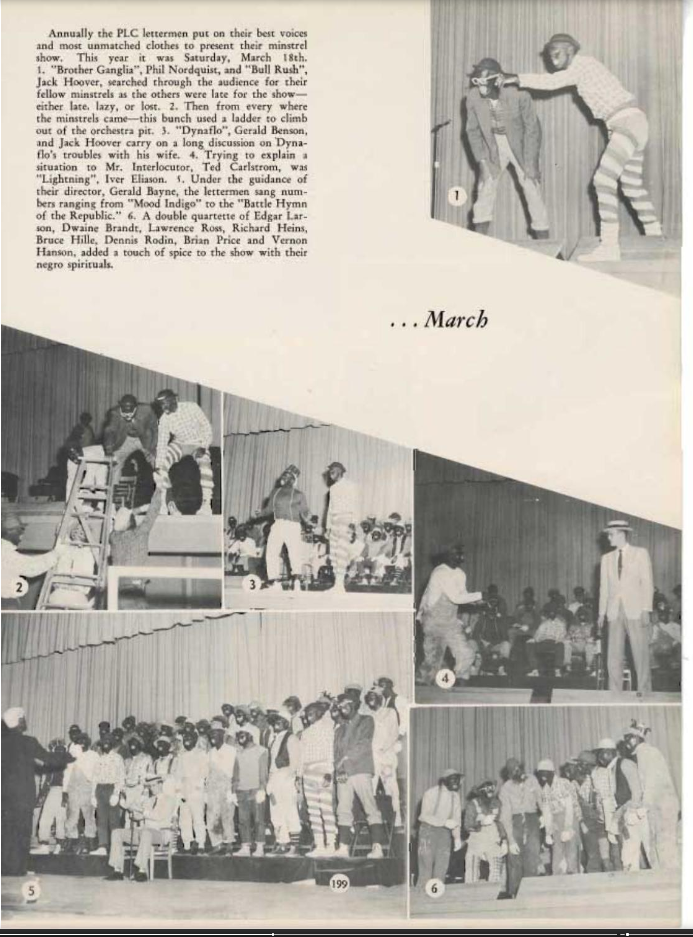By Solen Aref
Black History Month takes place in the U.S. during the month of February, and PLU has its own traditions to celebrate and observe the month each year. On campus during the month of February flyers and posters adorn PLU advertising various events put on by the Black Student Union (BSU) club for the celebration of Black History Month. Students who have black ancestors can celebrate their cultural history and offer a chance for other students to be engaged in learning about a significant portion of our nation’s history.
Black History Month, also known as African-American History Month was first observed by students and faculty at Kent State University, in 1970. Following that, in 1976 it became a national holiday when President Gerald Ford recognized “the too-often neglected accomplishments of black Americans in every area of endeavor throughout our history” in a speech regarding the United States Bicentennial. Today Black History Month is celebrated not only in the US, but around the globe by five different countries.
This year, PLU’s BSU club has worked hard to ensure a month of events that PLU students and staff can partake in to celebrate Black history. However, their efforts weren’t met without challenges.
The famous snowmageddon that rippled across washington state left many schools closing down for fear of campus safety. PLU was no exception. A movie day that was planned to take place in Hinderlie on Feb. 10 was cancelled due to the safety hazard presented by the weather.
“I was looking forward to y’all’s [BSU’s] movie day, but it was snowed in”, said BSU member Nayonni (Nai-Nai) Watts.
The snow caused classes to be canceled, the university to shut down, the student involvement fair was rescheduled, and many other events like the movie night to be postponed.
“It was unsafe for our members to like walk across campus, so yeah we were like we’re just gonna keep everybody safe and stay warm…” said BSU club Secretary Peanina (Nina) Moore.
Along with cancellation of the movie night, Moore said that “the planning process was definitely slowed down by the snow”. The weather made it difficult for club officers to meet and organize events, which already proved difficult in the first place, due to February being the shortest calendar month.
Both BSU members and staff also expressed frustration with the pressure that’s put on their club to take on the responsibility of creating all the celebration events. Moore said she wished that more of PLU’s cultural clubs, such as Asian-Pacific Islanders Student Association would also offer help to organize events for Black History Month.
“It shouldn’t fall on our shoulders, soley on our shoulder to educate the campus on black history” Moore said. She said she finds this especially unfair.
This seemingly unspoken rule that BSU is strictly in charge of creating Black History Month events is something that the club said it hopes to change in the future years to come, by connecting with other organizations on campus who would like to help out.
“We’re trying to educate ourselves while also trying to educate a whole campus,” Moore said.
This year the guest speaker for Black History Month was the New York Times best selling author of ‘So You Want to Talk About Race’, Ijeoma Oluo. Tickets to the show were sold out days in advance. Oluo started off the event by reading select chapters from her book to the audience crowd.
“Just because you do not understand it, does not make it any less real,” Oluo read.
She finished up the chapter and placed her book down, to talk about issues regarding black history, such as white supremacy and tone pleasing.
She closed the event by taking questions from audience members including one about MAGA (Make America Great Again) hat wearers, and how to break through to them. Her response varied from “I don’t f— with them” to saying she’d “rather have conversations with other people that aren’t racists instead”.
PLU sophomore Malcolm Clay said his favorite part of the event was “her coming [to PLU].”
PLU junior Kenzie Gandy said “when she was talking about white people in school systems, and thinking about the school-prison pipeline,” was the highlight for her.
After the event audience members who had a personal copy of ‘So You Want to Talk About Race’ stayed behind for an autograph from the author.
Following the guest speaker event, three more events took place to wrap up the ending of Black History Month. The Cultural Showcase allowed for participants of various cultures to model the different cultures we have at PLU.
This event showcased Black and African culture while also including other cultures that wanted to be represented by student models. Event host, senior Josh Wallace said he loved the turnout of the showcase.
“Students were cheering at the top of their lungs and the applause really filled the room” Wallace said.
Junior Carlos Alvarez said he appreciated seeing the PLU community come together for the night. Alvarez, who was one of the models, sported a zarape outfit, which tied back to his Mexican roots.
“Often times it is hard to see such vibrant group of students come together to share their stories, their family and cultural narratives as well as just a space for students to embrace their uniqueness within PLU” Alvarez said.
Despite the challenges faced, BSU did a fantastic job inviting the campus to learn and celebrate a month full of rich history. Students and staff of all walks of life were engaged thoughtful education, while simultaneously having a fun time celebrating this year’s Black History Month.
PLU’s hidden history

While interviewing for the Black History Month article, it was discovered that PLU has a history of blackface. Ministerial shows were put on during the annual carnival event in the late 1940’s to mid 1950’s. PLU student, Nayonni Watts, who found the images in the archives said, “it made me so mad…because they knew what they were doing.”

PLU’s director of Multicultural Outreach and Engagement, Melannie Denise Cunningham wrote an article published in the News Tribune saying, “there’s no place for blackface in today’s America,” she wrote. “The painful history of blackface is not addressed in schools nor discussed intelligently in the mainstream media.”






















